2016 Count of Certified Organic Operations
 The U.S. Department of Agriculture (USDA) announced new data indicating the organic industry continues to grow domestically and globally, with 24,650 certified organic operations in the United States, and 37,032 around the world!!! I believe this means we’re moving in the right direction, building a healthier and stronger food system that does not rely on the use of chemicals which have harmful affects on people and the planet.
The U.S. Department of Agriculture (USDA) announced new data indicating the organic industry continues to grow domestically and globally, with 24,650 certified organic operations in the United States, and 37,032 around the world!!! I believe this means we’re moving in the right direction, building a healthier and stronger food system that does not rely on the use of chemicals which have harmful affects on people and the planet.
“The 2016 count of U.S. certified organic farms and businesses reflects a 13 percent increase between the end of 2015 and 2016, continuing the trend of double digit growth in the organic sector.” Read the press release to learn more.
New York Riverkeeper’s Clean Up Success
 “1,765 volunteers hauled more than 25 tons of trash, tires, assorted junk and recyclable plastic away from Hudson Valley and New York City shorelines at 102 locations earlier this month as part of the 6th Annual Riverkeeper Sweep.”
“1,765 volunteers hauled more than 25 tons of trash, tires, assorted junk and recyclable plastic away from Hudson Valley and New York City shorelines at 102 locations earlier this month as part of the 6th Annual Riverkeeper Sweep.”
Wyoming Wind Farm Program to Train Mineworker Employees
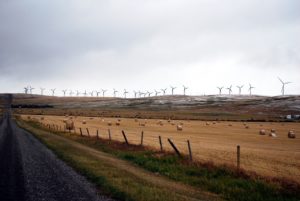 According to US News, Wind turbine manufacturer Goldwind Americas plans to train Wyoming workers as wind energy technicians. “Good candidates could include workers laid off as a result of the recent downturn in Wyoming’s coal, oil and natural gas industries,” said CEO, David Halligan.
According to US News, Wind turbine manufacturer Goldwind Americas plans to train Wyoming workers as wind energy technicians. “Good candidates could include workers laid off as a result of the recent downturn in Wyoming’s coal, oil and natural gas industries,” said CEO, David Halligan.
Goldwind Works, a company-sponsored training program, will begin with informational meetings next month followed by wind farm tours for those interested in working in the industry, the Wyoming Tribune Eagle reports.
Farmer’s Market Programs Boosting Access to Fresh Produce
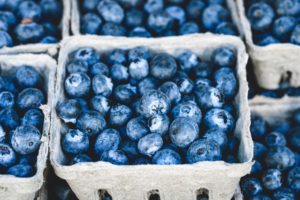 The issue in public health and human services is not the lack of food being produced, rather it is the inadequate access to whole, fresh, and healthy food which we as a society suffer from. But that’s changing across our nation, especially in California and even here in New York where many people are working to expand and improve access to fresh produce by way of increasing funds and support for farmer’s markets.
The issue in public health and human services is not the lack of food being produced, rather it is the inadequate access to whole, fresh, and healthy food which we as a society suffer from. But that’s changing across our nation, especially in California and even here in New York where many people are working to expand and improve access to fresh produce by way of increasing funds and support for farmer’s markets.
In the Fight Against Food Shaming
New York Schools Chancellor Carmen Farina tells principals to give lunch to all students even those who can’t pay. Farina said she would “put in writing to all principals that no child any time should be deprived of lunch.”
 Although the majority of the city’s public school students qualify for free school lunch, not all take advantage of it due to the stigma attached, and families of children that do not qualify may still struggle to afford to pay for school lunch. All of the city’s middle schools provide free lunch to all students, but the de Blasio administration has resisted a City Council proposal to expand free lunch citywide.
Although the majority of the city’s public school students qualify for free school lunch, not all take advantage of it due to the stigma attached, and families of children that do not qualify may still struggle to afford to pay for school lunch. All of the city’s middle schools provide free lunch to all students, but the de Blasio administration has resisted a City Council proposal to expand free lunch citywide.
“1 in 7 children in Massachusetts is at risk of hunger. State lawmakers are proposing free breakfast after the bell, that could reach 150,000 Massachusetts students in need.”
Eating Gluten-Free If You Don’t Have Celiac Disease Can Put Your Health At Risk
 “Going gluten-free, which became wildly popular over the past several years, may seem like a no-brainer path to cutting carbs and eating healthier. But by cutting out gluten if you don’t have to, you could be risking the health of your heart. It turns out that hard and fast gluten-free self-diagnosing might be downright dangerous if you’re not careful.” – Rodales Organic Life. Read the full story.
“Going gluten-free, which became wildly popular over the past several years, may seem like a no-brainer path to cutting carbs and eating healthier. But by cutting out gluten if you don’t have to, you could be risking the health of your heart. It turns out that hard and fast gluten-free self-diagnosing might be downright dangerous if you’re not careful.” – Rodales Organic Life. Read the full story.
Slow Food: The Importance of Biodiversity
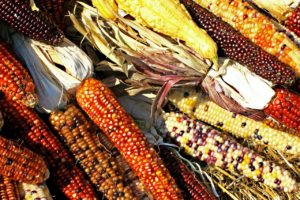 “Food is history, memory, and identity. It feeds many hungers. Diversity, on every level, increases our capacity to respond to challenges.” – Simran Sethi
“Food is history, memory, and identity. It feeds many hungers. Diversity, on every level, increases our capacity to respond to challenges.” – Simran Sethi
Most of us learned in high school biology that the more diversity you have within an ecosystem the stronger and more resilient that ecosystem will be when dealing with sickness, disease, and/or pests. Sadly, today, our reliance on only a handful of varieties (thank you Monsanto for all your GMO Seeds, NOT!!!) in the agricultural system has now significantly increased our vulnerability when it comes to issues of climate change i.e. higher temperatures, drought, etc. 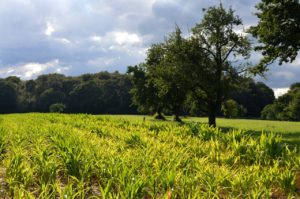
And although this principle of biodiversity should be a priority for the future of our food system, according to the Food and Agriculture Organization of the United Nations, “three-fourths of the world’s food comes from just 12 plants and five animal species.” Gasp.
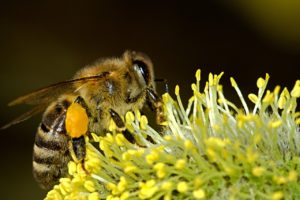 “These changes are a reflection of the loss in agricultural biodiversity—an erosion of diversity in every component that makes food possible—from reduced microbial activity in soils to disruptions in pollinator populations and the increased hybridization and consolidation of the plants and animals we raise for consumption.” – Simran Sethi
“These changes are a reflection of the loss in agricultural biodiversity—an erosion of diversity in every component that makes food possible—from reduced microbial activity in soils to disruptions in pollinator populations and the increased hybridization and consolidation of the plants and animals we raise for consumption.” – Simran Sethi

Comments are closed.